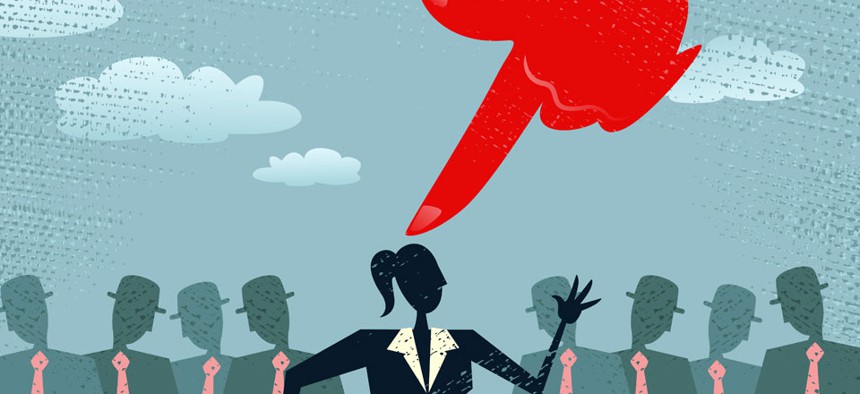
jorgen mcleman/Shutterstock.com
Favoritism Still Prevalent in Federal Offices, Some Employees Say
Unfair employee treatment hurts agencies’ ability to accomplish their missions, study finds.
Favoritism plays a big enough role in federal agencies to damage morale and reduce engagement, according to a new study.
More than a quarter of federal employees believe their supervisors demonstrate favoritism, the Merit Systems Protection Board found in its survey. Whether or not these perceptions are based in reality, the fact that many feel this way is damaging to morale, leadership credibility and productivity, MSPB said.
Favoritism occurs when a supervisor or selecting officer gives a promotion or some other advantage to one employee or applicant over another “based on friendship or other affinity rather than a legitimate, merit-based reason,” the report said. A supervisor can commit this action -- which goes against the federal government’s “merit system principles” -- intentionally or unintentionally, or it can simply be a misperception by an employee.
Whatever the cause, the results are clear: Among employees who said their boss did not play favorites, just 2 percent reported low levels of on-the-job engagement. One-third of workers who believed their managers did pick favorites were unengaged.
Favoritism manifested itself in many ways, MSPB found, though 27 percent of employees said they witnessed it through “social interactions,” making it the most common form. More than 20 percent of feds said they saw favoritism in each of the following categories: desirable work assignments, awards, performance ratings, promotion and acting supervisor opportunities.
Just 2 percent of respondents told MSPB personal relationships should play a role in promotion decisions, though 40 percent thought they did in practice. On the other end of the spectrum, an overwhelming 98 percent of federal workers said experience and competence should be used in deciding who to promote, but only 58 percent thought those factors were actually considered. This led to about one-third of employees believing those with friendships with the hiring official received a promotion when there was a more qualified candidate available.
MSPB recommended agencies provide adequate training for supervisors on the merit system principles, as well as prohibited practices, and hold supervisors accountable when they violate those standards. For their part, supervisors should maintain an honest two-way dialogue with feedback for employees to eliminate misplaced accusations of favoritism. This transparency, as well as the suppression of “subjective feelings” when making personnel decisions, will help boost overall morale and rededicate employees to the agency’s mission, MSPB said.
(Image via jorgen mcleman/Shutterstock.com)







